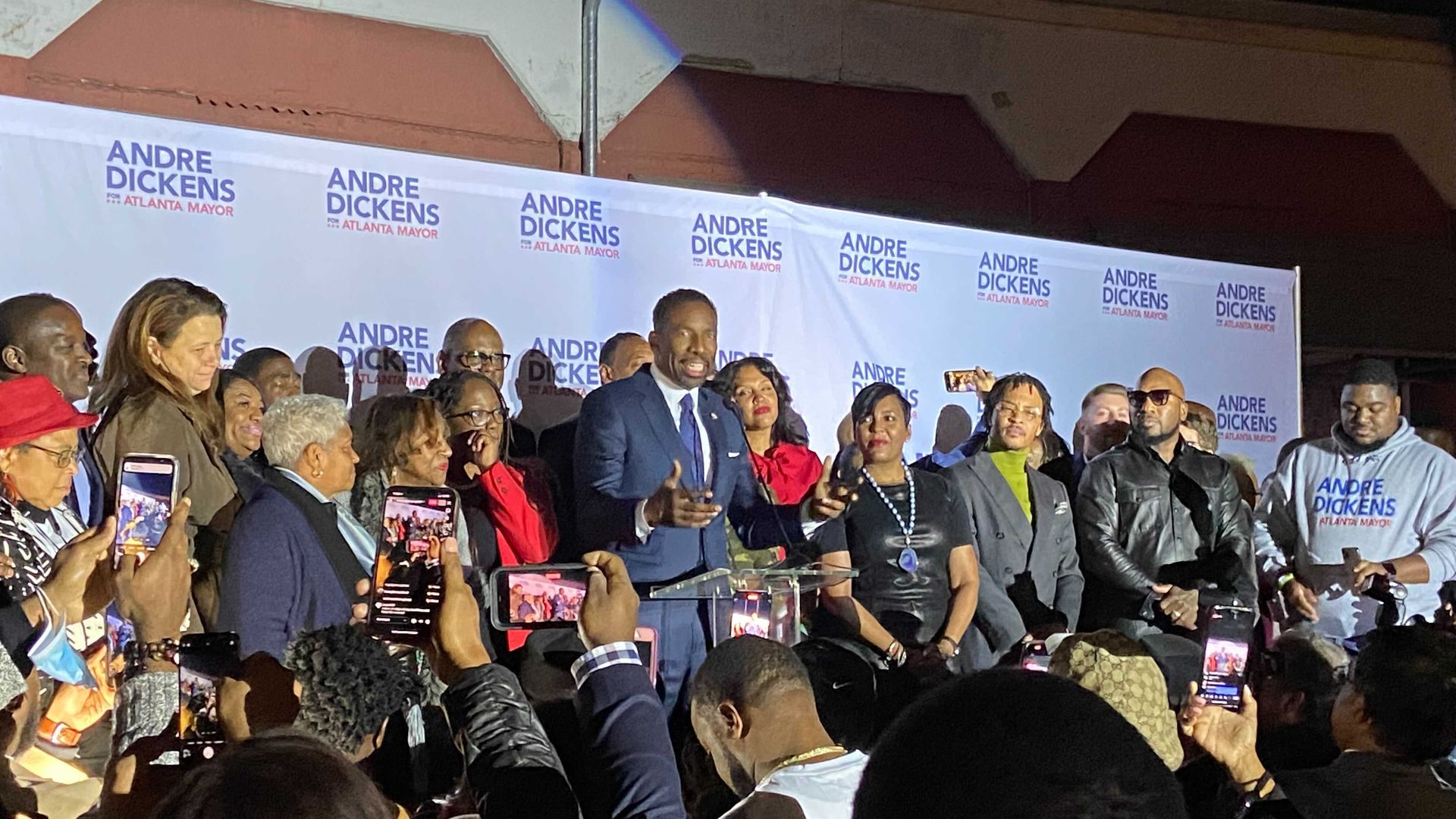Dickens wins Atlanta mayor's race
Add Axios as your preferred source to
see more of our stories on Google.

Photo: Emma Hurt/Axios
Last night, City Council member Andre Dickens soundly defeated City Council President Felicia Moore in the runoff election to become Atlanta’s 61st mayor.
The big picture: Dickens was just a few months ago considered to have an outside chance of replacing Mayor Keisha Lance Bottoms, who announced in May that she wouldn't seek a second term.
Details: Vote counts began favoring Dickens early in the night, a lead he held (and built upon) throughout the night against Moore, who had a 17-point lead over him in the general election weeks before.
- While many expected a runoff race between Moore and former Mayor Kasim Reed, Dickens made a sudden surge past Reed on Election Day to face Moore, his council colleague of eight years.
What they’re saying: “My real opponent in this race was never one of those 13 opponents that we thought they were. My opponent is homelessness, hopelessness, joblessness, racism,” Dickens said. “My opponent requires all of us, and that's what we're fighting against.”
- Moore urged supporters to “bring this great city together. There’s no division tonight between the Dickens camp and the Moore camp, because we are all camp Atlanta.
- Moore’s final message: “... For those who are in the area or neighborhood called Buckhead: Please work with our mayor. I’ve said it before, and I will continue to say it: Atlanta is better together than it will ever be apart.”
Reality check: Mayor-Elect Dickens now has the task of thwarting a push among some Buckhead residents to secede from the city of Atlanta.
How it happened, according to Chris Huttman, Dickens’ strategist:
- Rather than treating the white vote as one bloc, the campaign saw an opportunity in heavily targeting eastern Atlanta neighborhoods to stitch together a multiracial coalition with south Atlanta.
- Policy-wise, Huttman says Dickens found a middle lane by avoiding divisive issues like defunding the police, proposing a balanced approach to crime and focusing on real bread and butter issues — a strategy that Huttman thinks could be a template for Democrats elsewhere.
The view from an expert: ”Moore had a hard time shaking off or framing all her electoral support from Buckhead, as well as just being about good governance in the old progressive sense of technocratic talk, efficient government and fighting corruption,” said Michael Leo Owens, Emory University political science professor.

